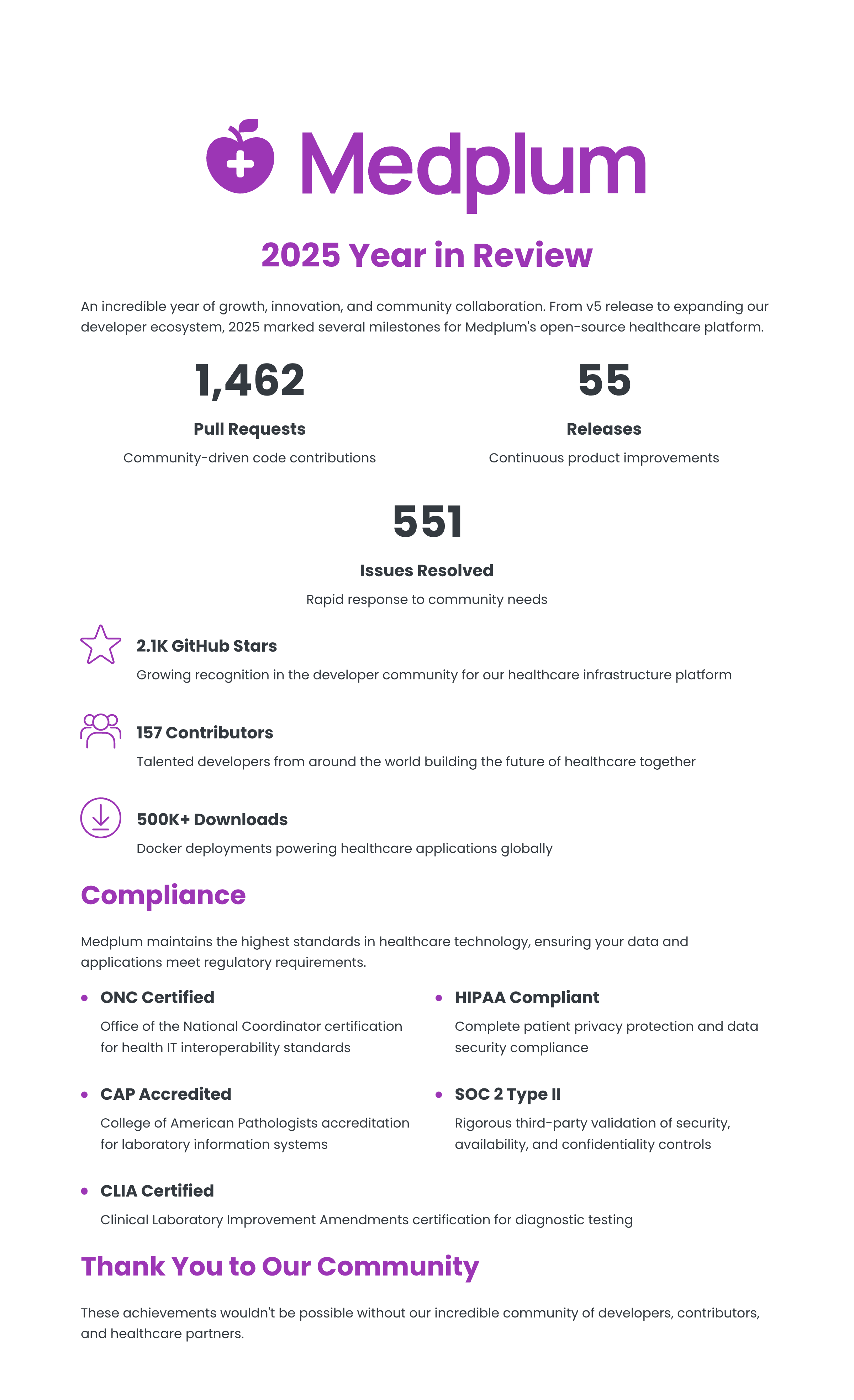Medplum Monthly Update - February 2026
February was a productive month for Medplum. We shipped four releases — v5.0.14, v5.0.15, v5.1.0, and v5.1.1, including a minor version bump reflecting the depth of new capabilities — with over 130 commits from 25+ contributors. The biggest themes this month were WebSocket subscription stability and performance improvements, AI-powered provider experiences, scheduling refinements, and revenue cycle tooling — all advancing our 2026 roadmap priorities.






